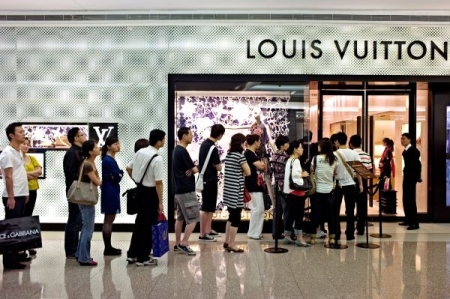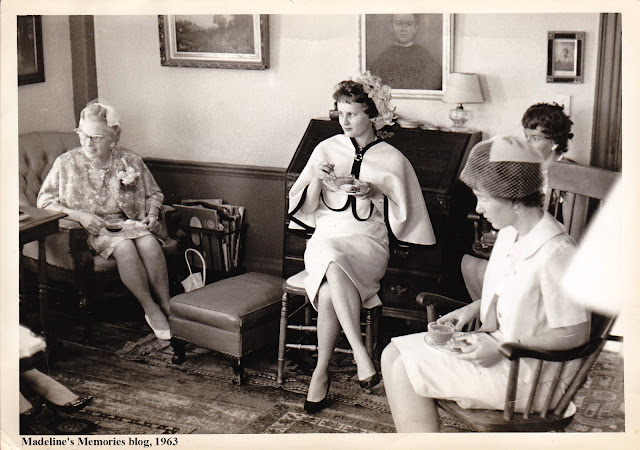Contemporary "lords of the manor"--the businessmen who own the means of production--busied themselves in the economically unproductive practices of conspicuous consumption. Their useless activities contribute neither to the economy nor to the material production of the useful goods and services required for the functioning of society.
It is the middle class (working class) who are usefully employed in the industrialised, productive occupations that support the whole of society.
The industrial production system requires workers to be diligent, efficient, and co-operative... whilst the owners concern themselves with making money and with the public display of their accumulated wealth.
(Such behaviors survived from the predatory, barbarian past of the tribal stage of modern society).
Economic life of a modern society is based upon the social stratification of "tribal" and "feudal" societies, rather than upon merit.
In exercising political control, the leisure class retained their high social-status by direct and indirect coercion, by reserving for themselves all military force, and so withheld weapons and military skills from the lower social classes. Such a division (economic utility) rendered the lower classes dependent upon the leisure class, and so established, justified, and perpetuated the role of the leisure class as the defenders of society against natural and supernatural enemies (because the clergy also belongs to the leisure class).
To attain and retain greater status within their social class, low-status people emulate the respected, high-status members by consuming over-priced brands of goods and services perceived to be products of better quality. (perceived is the key word!)
People buy high-status goods and services, which they cannot afford, despite the availability of affordable products that are perceived as of lower quality and lesser social-prestige, and thus of a lower social-class.
Businessmen make their money by manipulating the supply & demand among the social classes and their strata, for the same products at different prices.
Having a wife without an independent economic life (a profession or job), a man can display her as a form of his conspicuous leisure and as an object of his conspicuous consumption.
Sport is socially and psychologically advantageous to community cohesion. Yet, in itself, sport is an economic side effect of conspicuous leisure that wastes material resources.
Certain physical and intellectual pursuits display the freedom of a person from having to work in an economically productive occupation.
Wealth or power must be put in evidence, for esteem is awarded only on evidence.
The leisure class is supported by subordinated working classes that are employed in productive occupations. The leisure class is composed of people exempted from manual work and from practicing productive occupations, because they belong to the leisure class.
Among the lower social-classes, a man’s reputation as a diligent, efficient, and productive worker is the highest form of pecuniary emulation available to him in society.
Yet, among the strata of the leisure class, manual labour is perceived as a sign of social and economic weakness.
The working classes seek to emulate the standards of life and play of the leisure class.
Habitual consumption of products/services establishes a person’s standard of living. Therefore, it is more difficult to do without products.
An objet d’art made of precious metal and gemstones is a more popular possession than is an object of art made of equally beautiful, but less expensive materials, because a high price can masquerade as beauty.
The function of clothes is to define the wearer as a person who belongs to a certain social class, not for protection from the environment.
Society develops through the establishment of institutions (social, governmental, economic) modified in accordance with ideas from the past. Politically, the leisure class maintain their dominance by retaining out-dated aspects of the political economy.
In pursuit of social advancement, and concomitant social prestige, people who rid themselves of scruple and honesty will more readily rise into a stratum of the leisure class.
As owners of the means of production, the leisure class benefit from, but do not work in, the industrial community, and do not materially contribute to the commonwealth (the welfare of the public). But, they do consume the goods and services produced by the working classes.
As such, the individual success of a person derives from their astuteness and ferocity (used for either endurance or coercion), which are traits nurtured by the culture of the consumer society.
The belief in the concept of “luck” is a reason why people gamble. Likewise follows the belief that luck is a part of achieving success, rather than the likelier reason of social connections derived from a person’s social class and stratum.
The existence, function, and practice of religion in a socially-stratified society, is a form of abstract conspicuous consumption for the members of the person’s community. As such, attending church services, participating in religious rites, and paying tithes, are forms of conspicuous leisure.
or
In a consumer society, how a woman spends her time and what activities she does with her time communicate the social standing of her husband, her family, and her social class.
So, do you agree that such things apply to modern-day society? Should they continue to exist that way? No.
Well, this is nothing new. In fact, it was documented during the age of Enlightenment, and again at the end of the "Gay 90s" in 1899 (seen below). Has society changed? Have people learned? Or are too many people remarkably still playing the same "rat race"? Maybe folks should act more like Gone With the Wind's Rhett Butler ("I'm not going to contort for you"), instead of Scarlett O'Hara ("sell people into slavery so I can get rich, but I don't wanna know what's happening").









































No comments:
Post a Comment
Don't be shy: leave your comments :)